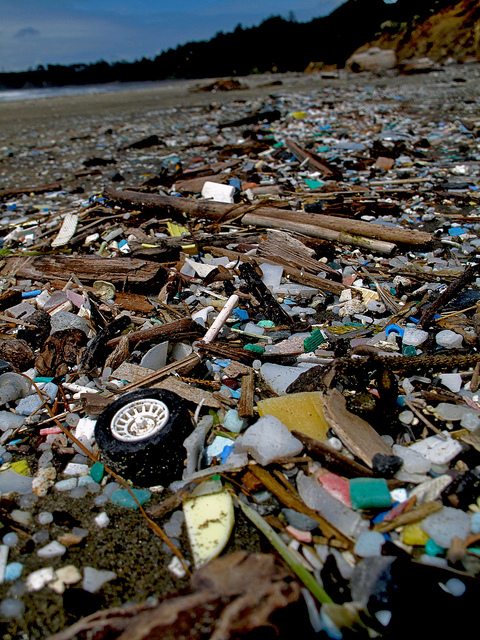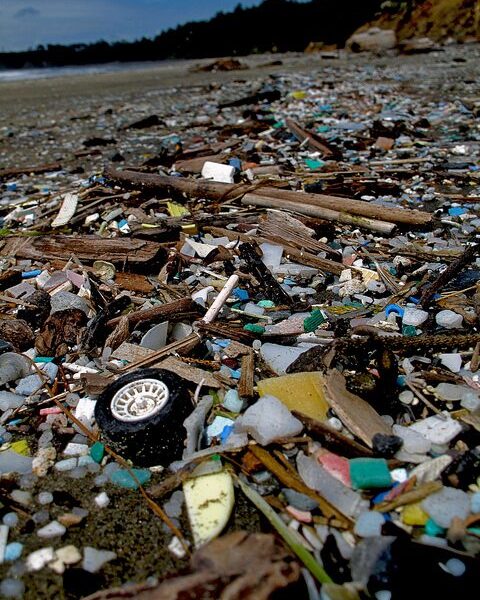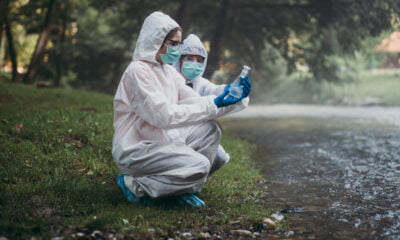

Environment
Study: over 5 trillion pieces of plastic now in the ocean
Researchers have measured how much plastic is now in the oceans and the findings show how huge the scale of the problem is. It is estimated that there are over 5 trillion pieces of plastic, ranging in size, in the oceans, collectively weighing 269,000 tons.
The findings, which were collected by scientists from the US, France, Chile, Australia and New Zealand, have been published in the journal PLOS One. The research was conducted by collecting plastic with nets whilst on ships or observing from the deck at over 1,500 locations and then using this data in computer models to estimate worldwide figures.
The majority of the plastic observed in the expeditions was ‘mircroplastics’ which are less than 5mm. Microplastics are a particular issue as animals eat them. The toxic chemicals and additives contained can enter the tissue of the marine animals and alter an ecosystem’s functions, as well as causing damage throughout the food chain.
Julia Reisser, a researcher based at the University of Western Australia, explained to the Guardian, “We saw turtles that ate plastic bags and fish that ingested fishing lines. But there are also chemical impacts. When plastic gets into the water it acts like a magnet for oily pollutants.
“Bigger fish eat the little fish and they end up on our plates. It’s hard to tell how much pollution is being ingested but certainly plastics are providing some of it.”
A separate study published earlier this year found that human litter in the form of plastic, fishing nets, glass and metals is now present in all marine habitats, from beaches to the most remote and deepest parts the oceans. Two leading scientists have also called for plastic waste to be diverted away from the oceans.
Plastic pollution isn’t limited to the oceans, with lakes and rivers also being affected.
Photo: Jason Karn via Flickr
Further reading:
Study: plastic pollution not limited to oceans
Plastic pollution at ‘alarming levels’ in Sydney harbour
‘Missing’ ocean plastic pollutants may be swallowed up by marine species
Most remote corners of the oceans full of human litter, study finds
Scientists call for action on plastics being dumped in marine environment

































